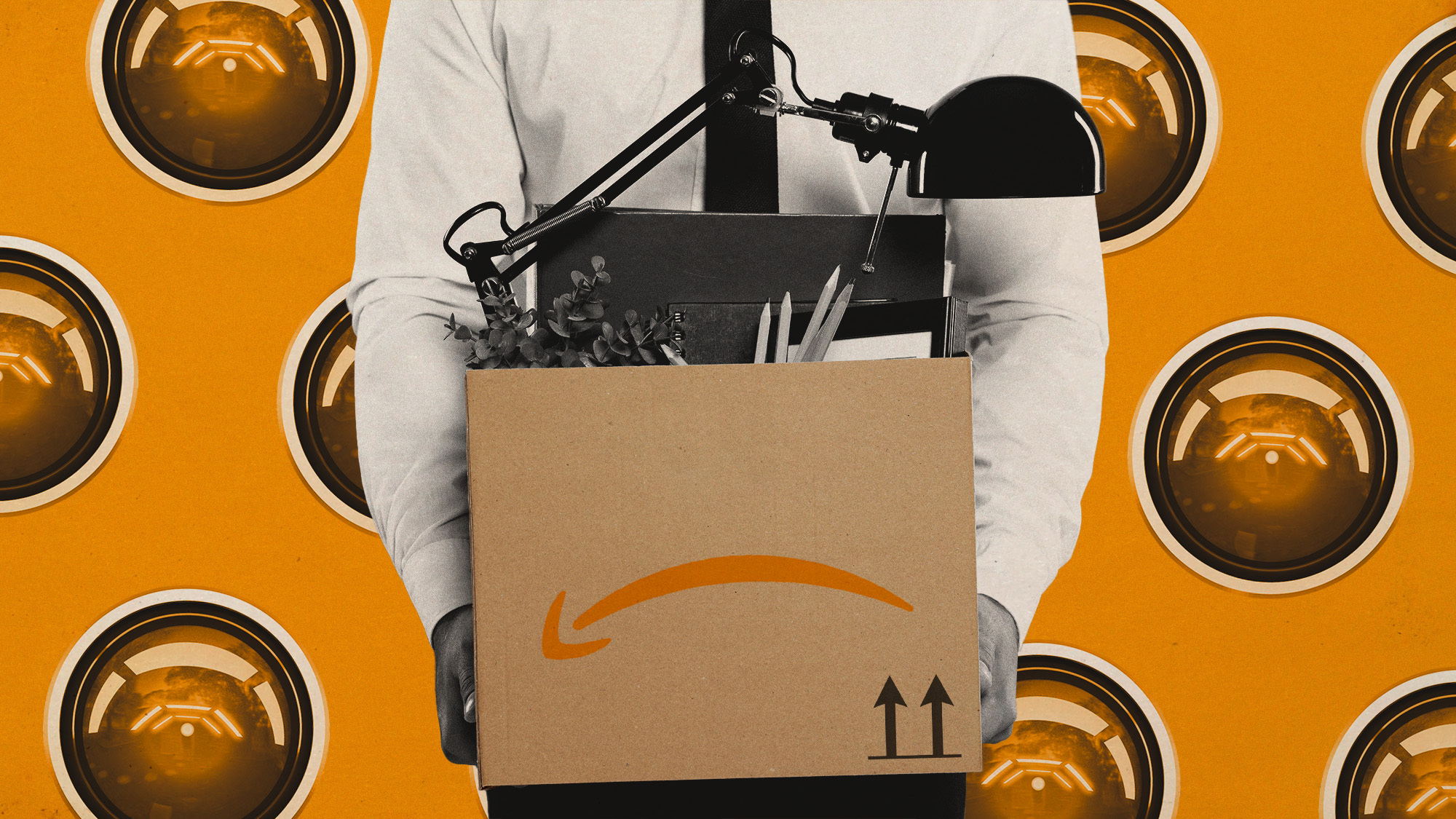Is AI to blame for recent job cuts?
Numerous companies have called out AI for being the reason for the culling


A free daily email with the biggest news stories of the day – and the best features from TheWeek.com
You are now subscribed
Your newsletter sign-up was successful
With layoffs hitting global industries across their workforces, companies are claiming a new culprit: the rise of artificial intelligence. Numerous brands, including major tech corporations like Amazon, have pointed to AI as the reason for the most recent wave of job cuts. But some labor analysts claim that blaming AI is simply a way for these companies to avoid taking responsibility when they downsize.
What did the commentators say?
Even as companies have been “blaming the promise of productivity with artificial intelligence for their decisions,” there is “uneven evidence that the promised cost-savings from AI are actually worth what companies are putting into it,” said NBC News. This has left some people “questioning whether AI could be serving as a fig leaf for companies that are laying off employees for old-fashioned reasons,” such as a company’s poor financial performance.
It is “much easier for a company to say, ‘We are laying workers off because we’re realizing AI-related efficiencies’ than to say, ‘We’re laying people off because we’re not that profitable or bloated, or facing a slowing economic environment, etc,’” David Autor, an economics professor at the Massachusetts Institute of Technology, said to NBC. Even if AI wasn’t the reason for a particular layoff, companies would “be wise to attribute the credit/blame to AI.”
The Week
Escape your echo chamber. Get the facts behind the news, plus analysis from multiple perspectives.

Sign up for The Week's Free Newsletters
From our morning news briefing to a weekly Good News Newsletter, get the best of The Week delivered directly to your inbox.
From our morning news briefing to a weekly Good News Newsletter, get the best of The Week delivered directly to your inbox.
The most notable example of this is Amazon, which has announced a new wave of 14,000 job cuts. This “came just a few months after CEO Andrew Jassy said the rollout of AI technology was likely to spell job cuts,” said Al Jazeera. But while experts are skeptical, AI “may be” at fault for the Amazon cuts. This “latest move signals that Amazon is likely realizing enough AI-driven productivity gains within corporate teams to support a substantial reduction in force,” Sky Canaves, an eMarketer analyst, said to Reuters.
Despite these changes at Amazon, many people have “voiced skepticism that recent high-profile layoffs are a telling sign of the technology's effect on employment,” said BBC News. There is a “real tendency, because everyone is so freaked out about the possible impact of AI on the labor market moving forward, to overreact to individual company announcements,” Martha Gimbel, the executive director of the Budget Lab at Yale University, said to the BBC.
What next?
Whether AI is truly at fault or not, there’s no question that the technology is replacing certain jobs. In July 2025, Microsoft released a research paper outlining 40 occupations the company thinks could be outsourced to AI. At the top of the list were interpreters and translators, followed by historians, passenger attendants, sales representatives, writers and customer service representatives. The job that Microsoft felt was the safest from AI was a phlebotomist, followed by nursing assistants, waste removal workers, painters, embalmers and plant operators.
Understanding the “effects of AI on the economy” will become “one of society’s most important” efforts, the paper said. This has especially been true in the “last several years,” as “generative AI has come to the fore as the next candidate general purpose technology, capable of improving or speeding up tasks as varied as medical diagnosis and software development.” Its extensive reach has already been “reflected in the astounding rate of AI adoption.”
A free daily email with the biggest news stories of the day – and the best features from TheWeek.com
Justin Klawans has worked as a staff writer at The Week since 2022. He began his career covering local news before joining Newsweek as a breaking news reporter, where he wrote about politics, national and global affairs, business, crime, sports, film, television and other news. Justin has also freelanced for outlets including Collider and United Press International.
